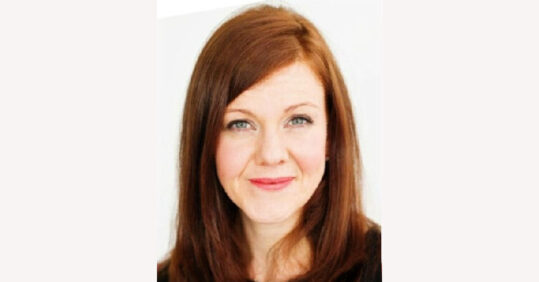Why we want nurses to join us in the fight against gambling harms

Gambling harms are a serious public health issue which can affect anyone. They don’t just have an impact on people’s finances, they can also affect their relationships, as well as their physical and mental health, and can negatively impact their families or communities. However, gambling harms often go unnoticed, by friends and family, but also especially by healthcare professionals, including nurses.
Research commissioned by us at GambleAware, the leading independent charity and strategic commissioner of gambling harm prevention and treatment, found that three-quarters (75%) of those who experience problems with gambling feel unable to open up about it due to concerns around stigma.
Related Article: Supporting student nurses on placement in general practice
For many, that stigma can be a major barrier to coming forward to ask for help, even from those who may be best able to provide support, such as nurses and doctors. Further research from Ipsos found that well over a quarter (27%) of those experiencing significant harm from gambling felt judged or treated differently by healthcare workers, while the majority (86%) felt ashamed about their gambling when in healthcare settings. Data collected from people who used our National Gambling Treatment Service in 2021/22 also showed that the average time it took people experiencing gambling harms to seek help was 10 years, showing how strong the barrier to getting help can be.
We are working hard to try and overcome this stigma associated with gambling to ensure more people are able to get the support they need through our public health campaigns, such as our recent stigma awareness campaign. We have also created an accompanying stigma language guide, which healthcare professionals can use, and which gives examples of language to avoid when talking to patients about gambling harms, and alternatives that help reduce stigma.
Alongside stigma, we also know accessibility of services is key, which is why we have commissioned the first ever Primary Care Gambling Service (PCGS) as part of the National Gambling Support Network. The clinic was opened in 2019 in south London by Dame Clare Gerada and is made up of a multidisciplinary team of mental health nurses, GPs, treatment practitioners and therapists. We hope by commissioning the Primary Care Gambling Service, we will be able to get more people to access the help and support they need.
The support of healthcare professionals is essential in tackling gambling harms and the stigma associated with it. Healthcare professionals are expected to ask their patients whether they drink or smoke and as a public health issue, gambling needs to be treated in a similar way. We want to see healthcare professionals, including nurses, also asking patients questions such as whether they have ever gambled more than they can afford, or if they hide their gambling from the people around them. This can help identify harms much sooner and help people get the support they need.
Related Article: We need one million people in England to give blood
We are working with the Royal College of General Practitioners (RCGP) to raise awareness of gambling harms amongst primary care healthcare professionals. The RCGP is developing a curriculum for primary care staff to help identify and support people with gambling harms, for example by pointing them in the direction of the treatment available for people via the National Gambling Support Network (NGSN), which we commission. We want to replicate this by working with other healthcare professionals including nurses.
Nurses are on the front line of treating those in need and we believe they have a vital role to play in helping those experiencing gambling harms. We hope our stigma guide will be useful to those in the profession and we call on all nurses to look out for the signs of gambling harms and be aware of their local National Gambling Support Network member organisation, so that they can signpost anyone they treat who may be in need of its services. Working together, we can reduce the impact of gambling harms across Great Britain.
Related Article: Call for nurses to be central to a potential ‘Operation Paramount’ roll-out
Anna Hargrave is chief commissioning officer at GambleAware.
Anyone worried about how gambling makes them feel can find free and confidential advice, tools and support by searching GambleAware or contacting the National Gambling Helpline, available 24/7, on 0808 8020 133.

See how our symptom tool can help you make better sense of patient presentations
Click here to search a symptom




